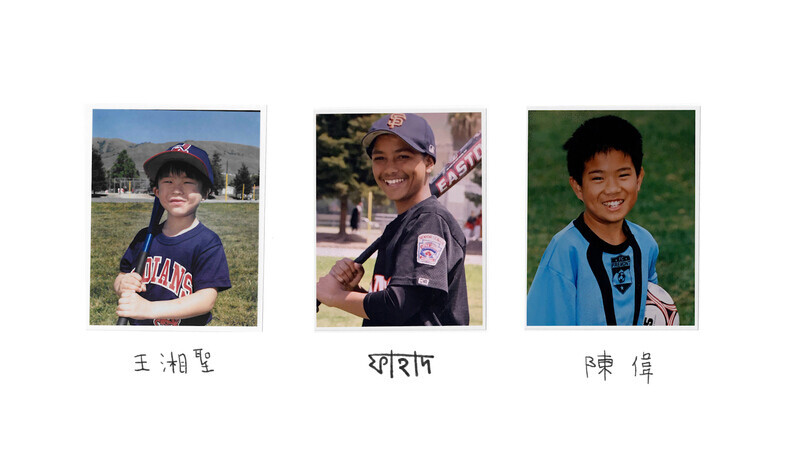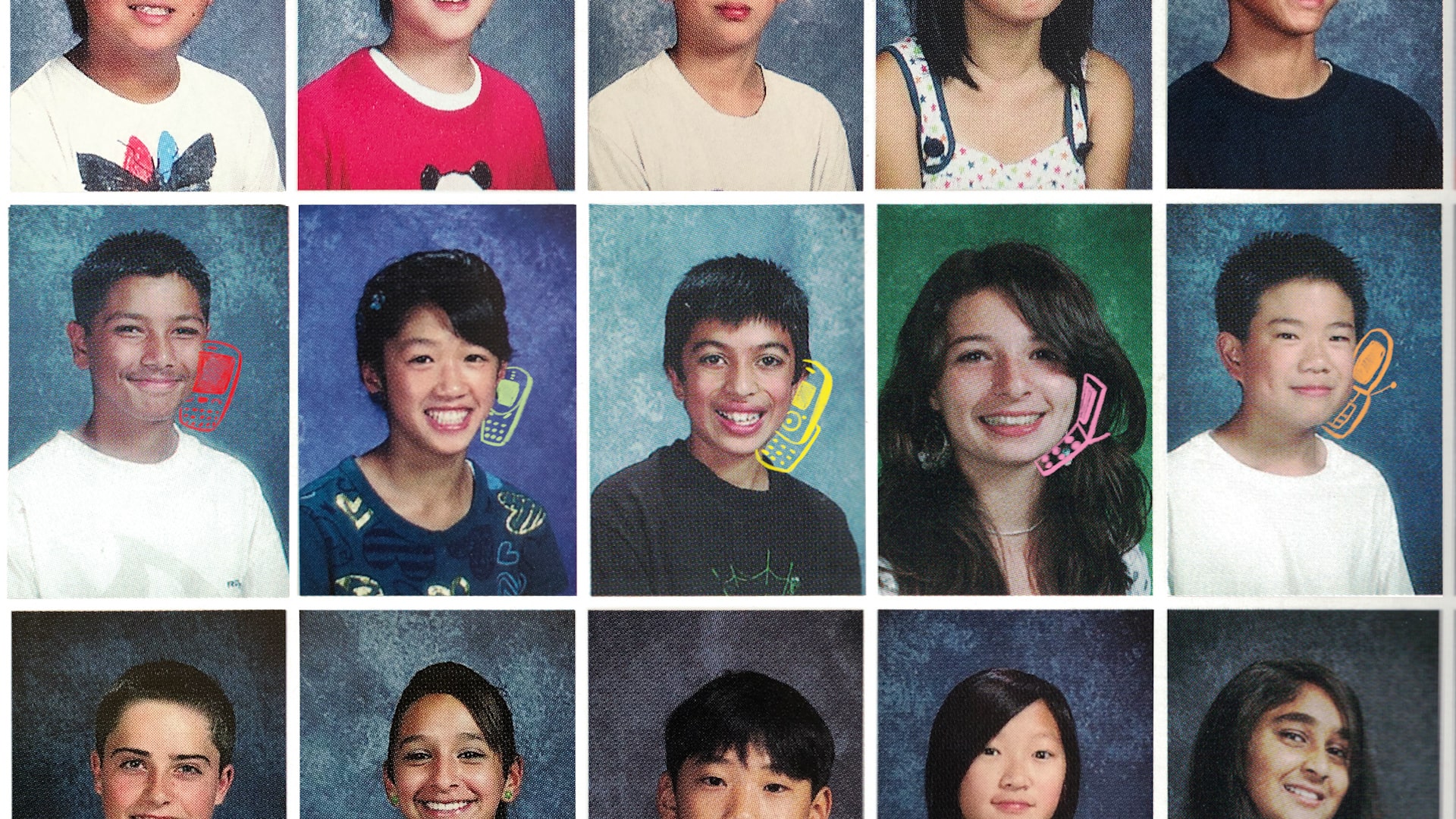The film starts with various voices answering a phone call. “Hello?… hello?…” These are all young voices, but just how young? Is mid-twenties, approaching-thirty considered young? How much time has passed since these people talked to each other? In the case of this film, these people probably haven’t seen each other in well over a decade. The phone call was prompted by the filmmaker, Sean Wang, going through his eighth grade yearbook. His friends from long ago are now older, wiser; young enough to appreciate, laugh about and feel a bit nostalgic for the old days, old enough to know it’s time to graduate into adulthood.
Wang’s animated documentary, “H.A.G.S. – Have A Good Summer,” comes out just as we’re all starting to venture out and see old friends in person again. It’s the right film at the right time. The film is made up of phone calls Wang made to old friends from middle school who are at that age where they wonder what happened to that confident kid who thought he/she could take on the world. How did they end up as waiters while still dreaming of success? What starts out as a charming collection of reunions among friends becomes a highly introspective and moving portrait of young adults looking back not just on their more carefree days, but about how they were perceived in terms of their race and the expectations their parents had for them.
In a way, Wang’s film reminds me of Michael Apted’s “Up” series. This feels like a mini-installment of that as these people are faced with their memories of being a highly confident, yet insecure person and where that has led them. Wang makes the smart choice of leaving in the awkward pauses in the conversations. You can almost hear their inner thought process as they weigh their past and their future. It’s not about not being able to fill dead air with conversation. It’s about the moment of realization that decades have passed since these youthful days even though it often feels as though real adulthood is still years and years away.
“H.A.G.S. (Have A Great Summer)” is part of the New York Times Op-Docs series.
Q&A with director Sean Wang
How did this come about?
“H.A.G.S.” initially began as research for a feature film I’m writing & developing that takes place during the summer of 2008, between eighth and ninth grade. I had reopened my middle school yearbooks just to refresh my memory and get a better sense of that time, but flipping through them affected me in a surprising and unexpected way. I was immediately thrust back to the specific joys, anxieties, and innocent chaos of those years and felt everything from immense warmth to deep sadness looking back, amplified by my own feelings of growing up. It made me curious to see how old friends of mine were handling their own journeys into adulthood—so I decided to call them and see.
Did you try to reach out to anyone, but couldn’t get a hold of them? And did the people you did get a hold of know this would be for a film?
Yes and no. There were people I called who didn’t pick up and that was the end of that—I didn’t really try to force any conversations to happen. But the people I called who are in the film also weren’t just random classmates who signed my yearbook. They were, and are, friends of mine—people who I genuinely love and wanted to reconnect with in a deeper way than just being aware of what they’re up to on social media. The framework of it being “for a film” was in my head, but was secondary to the initial impetus of just being curious about where they are now and their feelings about growing up. I let them know that I had very loose ideas in possibly turning their calls into some sort of film, if they’d be open to it. I was pretty confident that they would all be both excited and supportive about the prospect of doing so, and they were! They very much became collaborators throughout the process and the film 100% couldn’t exist without their contributions.

With regards to one’s identity in relation to parents and upbringing, what, for you, was the biggest take-away from that conversation?
I think the biggest take-away for me was that the some of the anxieties of growing older that I felt were specific to my life—comparing my life now to my parents lives’ then and the privilege afforded to me of getting to stress about navigating a filmmaking career while their main priority at this age was survival in an unknown land, among other things—are not particular to me. It was very reassuring to talk about it with friends I grew up with, those who knew me then and know me now, and hear that it’s a shared feeling between us. And now that the film is out in the world, it’s been incredibly comforting to see that it’s a feeling a lot of people seem to resonate with, whether or not they’re children of immigrants or share any overlap of identity with us.
My hope is that people will watch this and want to reconnect with their old friends. Did you find this process, in any way, therapeutic? If so, how?
Definitely. The phone calls themselves were some of the most meaningful conversations that I’ve had as a young adult and certainly allowed me to process and feel less alone in my own anxieties and uncertainty of the future, but for it to work as a film, it had to be a collaboration with the people involved. Although I was fairly confident they’d be open to the idea, there was no guarantee that they’d welcome the process of making it with me, but it’s what I hoped for and it’s what everyone involved so happily and generously gave to the project, so I’m really grateful that it all came together in a way that we’re all very proud of.
This project was basically a good excuse to reconnect with them and we’ve all still been in touch since. In many ways too, although the film never directly addresses the pandemic, this project was sort of a product of it. It was uniquely capable of being made safely and almost entirely remotely, and whenever I’d feel overwhelmed about the state of the world or anxious about the news, I’d just open up the project file and dive into trying to solve the puzzle of what this film could be. There was probably a few months of dead-end trial and error, but the process of figuring it out just felt like hanging out with my friends during a time where we weren’t able to see them in person, so that was incredibly therapeutic and I feel very fortunate to have had this film as an outlet during such a tumultuous year.

What was the editing process like? Was it hard to distill these conversations down?
It was hard, but I think an edit for a film like this is just complex in nature. There were hours of audio and for the longest time, I didn’t know if we had something that could even work as a film because the conversations, as meaningful as they were, were a little all over the place and touched upon a myriad of topics. But I knew that the conversations were special and that if I could capture the spirit of them—both the lighthearted and poignant—then there was maybe something there, but I just wasn’t sure if I could weave together a narrative throughline that worked.
Ultimately, the film ends up focusing on just three of us, but that wasn’t the intention going into it. I think because we share these overlapping intersections of identity, we were able to speak to adulthood and growing up, and the sort of struggles of comparing yourself to your parents, and the different lives we live in a way that felt very familiar, natural, and specific to us. In a way, that was sort of the eureka moment for me: realizing that the three of our voices together could create something that felt singular in thought and could speak both directly, and indirectly, to our specific experience of growing up as first-generation Asian Americans in the Bay Area. That’s obviously something that feels personal to me and something I felt I could speak about with authority. Once I realized that was the perspective that the film was sort of being filtered through, the challenge then became crafting an edit that wove our conversations together in a way that emphasized that point of view without, hopefully, being too on the nose about it.
What’s next for you?
It wasn’t the intention when I first started working on this, but in a tangential way, “H.A.G.S.” is like a cousin to the feature film that inspired it, even though one is a short documentary and one is narrative fiction. If “H.A.G.S.” explores themes of adolescence, belonging, and identity in looking back at that era of the late ’00s, seen through a first-generation, Asian American lens, the feature explores similar themes through similar characters, but is the subjective, visceral reality—with a much stronger emphasis on family. I’m currently in the process of developing that and hope to start the process of getting it off the ground this year. Aside from that, I’m in post-production on a new documentary, developing a couple short narrative projects I hope to shoot in the near future, and looking forward to doing some more work in the branded space soon.












